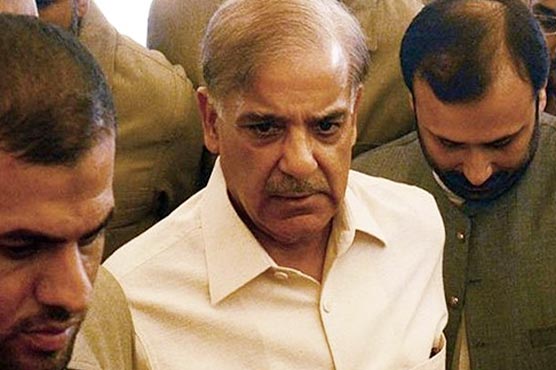Another media trial appears to be in the making this time around former Chief Minister of Punjab and senior leader of PML-N, Shahbaz Sharif.
According to a story in The UK paper Mail “Shahbaz Sharif during his tenure as Punjab chief minister embezzled millions of pounds out of around £500m that Britain’s Department for International Aid has poured into the province for upliftment projects. According to the report, a substantial chunk of the money for the rehabilitation of the victims of the 2005 earthquake was also diverted into the personal accounts of the PML-N leader and his family through an elaborate money-laundering scheme.”

Shahzad Akbar, special assistant to Prime Minister Imran Khan, “at a press conference on Monday displayed copies of pay orders as evidence that millions of rupees had been illegally transferred from the Earthquake Reconstruction and Rehabilitation Authority to a company owned by Mr Sharif’s son-in-law.”
According to an Editorial in the Dawn “If proven correct, they could call into question DFID’s oversight mechanisms and imperil its development aid to Pakistan, which is the largest recipient of its international funding.”
The Dawn’s questions are relevant, “one wonders why the government did not hand over what it believes is incriminating evidence for NAB to investigate, rather than extending robust cooperation to a British tabloid — that too one which has been successfully sued several times. when the government has taken a strong position against media coverage to convicts and prisoners under trial, why was the writer of the MoS story given access to an individual arrested by NAB on suspicion of money laundering? And why was DFID’s earthquake rehabilitation funding directed towards Punjab at all when the brunt of the disaster was borne by people in KP and Azad Kashmir? One also hopes the government will be more forthcoming about how money was allegedly siphoned from funds handled by Erra, a federal authority, for the benefit of the then Punjab chief minister.”
And Dawn warns, “the matter seems to have become yet another media trial which does not strengthen the perception of an accountability process free of political bias.”
![]()





